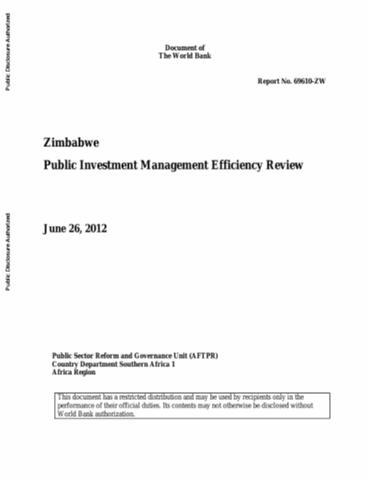Zimbabwe Public Investment Management Efficiency Review
The Public Investment Management (PIM) efficiency review is intended to support the Government of Zimbabwe, and in particular the Ministry of Finance, in its efforts to strengthen the efficiency of the public investment system, with the goal of improving the creation, operation and maintenance of public sector capital assets that support service delivery and economic growth. The problems of public investment management are not merely financial but systemic. Budget execution deficit remains a major bottleneck.


